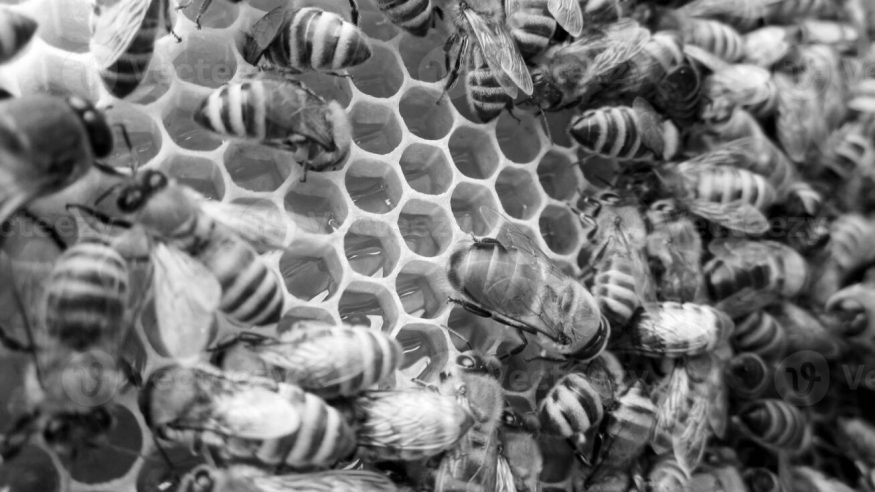How should we lead our intellectual lives?
14 October 2024
This question has long preoccupied philosophers, but has recently taken on greater public urgency in response to fears about misinformation, disinformation, bullshit, tribalism, and other perceived epistemic threats.
One answer to this question is that we should live our intellectual lives the same way we should live our ethical lives: virtuously. In other words, we should cultivate personal characteristics, such as open-mindedness, intellectual humility, and self-vigilance, that promote the intellectual flourishing of ourselves and others. Accomplishing this feat is neither easy nor straightforward; it is a life-long pursuit that requires instruction, training, and exemplars of intellectual virtue and practical wisdom. In a time of declining interest in the liberal arts in parts of the world, several epistemologists have advocated for the implementation of virtue-based curricula in elementary and secondary schools, with a few notable successes (Baehr 2016). The aim of such educational measures is to make students more intellectually virtuous and autonomous, such that they possess the inclination and the resources to facilitate their own intellectual flourishing (Carter & Pritchard 2017).
I find these efforts and their theoretical underpinnings worthwhile, but somewhat puzzling. What I find particularly strange is their overwhelming focus on individuals. Our intellectual lives depend on so much more than our own cognitive powers and dispositions. We are extraordinary social learners whose most impressive intellectual achievements are irreducibly collective. Our ability to travel through space, sequence DNA, and uncover the fundamental constituents of the physical world depend on the coordinated efforts of thousands of thinkers. Even the abilities of individuals are irreducibly social: no single person is responsible for their use of language, writing, or arithmetic. Other people profoundly influence not only what we think, but how we think. This being the case, whether or not we flourish depends more on who we think with, and under what conditions, than it does on how we think when left to our own devices. Indeed, we know that the best groups outperform the best individuals when making predictions (Tetlock & Gardner 2015) and solving problems (Trouche, Sander & Mercier 2014).
Aren’t the best groups made up of the best individuals? In order to flourish, then, shouldn’t we surround ourselves with virtuous thinkers, while being as virtuous as we can be? This isn’t a bad policy, but it might not be the best. Why? Because sometimes optimal groups are not made up of the most virtuous individuals. Collectives perform well when they efficiently divide the cognitive labor required to complete the tasks with which they’re engaged. In other words, they break-up these tasks into more manageable components, and distribute the components to those who are most apt to complete them successfully. Now here’s the key point: the intellectually virtuous might not be most apt to fulfill some of the functions within their groups. In other words, some epistemic vices, which interfere with the intellectual flourishing of individuals, may facilitate group success, when manifested under the right conditions.
Consider the vice of closed-mindedness, which has been characterized as an unwillingness to seriously engage with relevant information (Battaly 2018). One common manifestation of closed-mindedness is the myside bias in our reasoning, i.e., our tendency to attend to, generate, and evaluate evidence in ways that favour our existing beliefs. By reasoning in this way, individuals miss out on true beliefs that they could hold and fail to correct false beliefs that they do hold. Closed-mindedness thereby interferes with their intellectual flourishing.
Yet, it can also accomplish something important when individuals disagree with one another in critical deliberation. In these settings, the myside bias ensures that the labor of arguing for and against the positions under discussion is distributed to those who are best suited for the job: each view gets criticized by those who are most sensitive to the evidence against it, and defended by those who are most sensitive to evidence in its favor (Mercier & Sperber 2011). In this way, they get vetted more thoroughly than they typically could be by any open-minded individual, since collectives generally possess more relevant information than any of their constituents. Philosophers of science have long pointed out that this type of biased reasoning in scientific communities is essential for effective theory testing (Popper 2020; Longino 1990). It ensures that popular theories continue to be severely tested by their detractors and unpopular theories aren’t abandoned too early by their defenders.
Of course, biased deliberation can also go awry. When interlocutors generally agree on the issue that they’re discussing, their common bias pushes them further towards the view they favor (Sunstein 2003). When interlocutors are highly biased in favor of different views, their arguments prove ineffective, and they end up being polarized by deliberation (Gabriel & O’Connor 2024). These scenarios can often be avoided when deliberation includes individuals who are tasked with facilitating discussions (e.g., judges, moderators, managers) or generating outcomes on the basis of deliberations (e.g., juries, voters, editors). It is important that these roles be played by individuals who are open-minded, so that they can limit the effects of biases on all sides. Thus, different cognitive dispositions are conducive to the successful performance of different functions within the process of adversarial deliberation. Well-designed systems of adversarial deliberation – e.g., legal and parliamentary systems, deliberative polls, adversarial collaboration in science – effectively distribute cognitive tasks to those who are best suited to perform them successfully.
The two-sided nature of closed-mindedness – beneficial in some social settings, but not in others – is shared by other epistemic vices, including intellectual arrogance (Bland 2024) and intellectual servility (Levy & Alfano 2020). This being the case, we need organized collectives and institutions that can strategically leverage the upside of widespread vices, while keeping their downsides in check. And we need individuals to learn how to rely on, and play a part in, these collectives. This is, in my view, a higher priority than educational interventions that target the uniform cultivation of intellectually virtuous and autonomous agents.
We flourish together, or not at all.
Picture: Abstract hexagon structure is honeycomb from bee hive 29852423 Stock Photo at Vecteezy.
- October 2025
- September 2025
- August 2025
- July 2025
- June 2025
- May 2025
- April 2025
- March 2025
- February 2025
- January 2025
- December 2024
- November 2024
- October 2024
- September 2024
- August 2024
- July 2024
- June 2024
- May 2024
- April 2024
- March 2024
- February 2024
- January 2024
- December 2023
- November 2023
- October 2023
- September 2023
- August 2023
- July 2023
- June 2023
- May 2023
- April 2023
- March 2023
- February 2023
- January 2023
- December 2022
- November 2022
- October 2022
- September 2022
- August 2022
- July 2022
- June 2022
- May 2022
- April 2022
- March 2022
- February 2022
- January 2022
- December 2021
- November 2021
- October 2021
- September 2021
- August 2021
- July 2021
- June 2021
- May 2021
- April 2021
- March 2021
- February 2021
- January 2021
- December 2020
- November 2020
- October 2020
- September 2020
- August 2020
- July 2020
- June 2020
- May 2020
- April 2020
- March 2020
- February 2020
- January 2020
- December 2019
- November 2019
- October 2019
- September 2019
- August 2019
- July 2019
- June 2019
- May 2019
- April 2019
- March 2019
- February 2019
- January 2019
- December 2018
- November 2018
- October 2018
- September 2018
- August 2018
- July 2018
- June 2018
- May 2018
- April 2018
- March 2018
- February 2018
- January 2018
- December 2017
- November 2017
- October 2017
- September 2017
- August 2017
- July 2017
- June 2017
- May 2017

